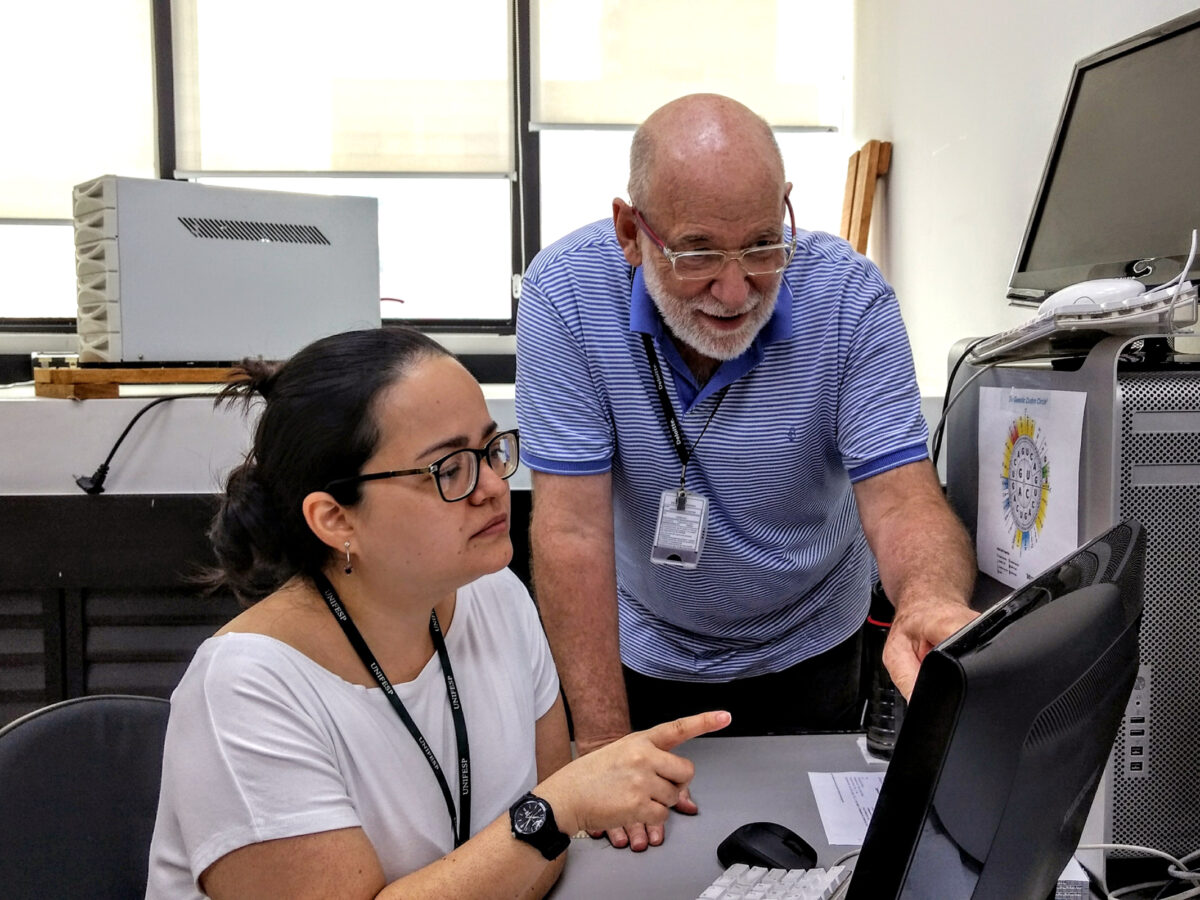Jim Hunter

Rethinking Retirement
Jim Hunter ’64 traveled to Brazil on business 20 years ago, and he never quite made his way home. Or rather, he made a new home, there in São Paulo. “I met my wife in 1997, and I’ve basically been here since,” he says from his apartment on the last morning of Carnaval. Fluent in Portuguese and happily assimilated into Brazilian culture, he has been a permanent resident since 2001 — and in the midst of what many would consider their retirement years, Hunter has found a new vocation as well.
In 2014 after working in business, real estate and urban planning for many years, Hunter enrolled in a doctoral program to study infectious diseases at the Universidade Federal de São Paulo (UNIFESP). He was 68. As part of his studies, he provides statistical and programming support to a team of researchers at the Retrovirology Laboratory of the Paulista School of Medicine, where they are searching for a cure for HIV and its related illnesses. “We are reasonably sure we’ll find one,” he says.
Brazil’s outstanding databases help put his team at the forefront of AIDS research and allow Hunter, whose dissertation is largely about mutations, to conduct research without having to run new experiments. His team has been approached by other universities to work on projects together. “Every case has been logged,” he explains. “We keep track of [patients’] cellular anomalies, every medication. We have millions of test results, viral samples and mutations. It’s all here.”
Hunter finds the work, and the knowledge of its potential benefits to society, incredibly rewarding. “I should have been doing this 30 years ago,” he says. Outlining a memorable career, he clarifies, “I’ve had some really terrific experiences.” With a master’s degree in urban planning from Yale School of Architecture, he supported efforts to revitalize downtown Los Angeles and was involved in the redevelopment of Times Square — an experience he calls the “highlight of my first 40 years.”
He later worked as a consultant, performing quantitative analyses for clients in the business and real estate worlds. “Eventually,” he says, “I became more interested in the quantitative methods themselves.” That interest would alter his trajectory. When a colleague asked him to teach a course in statistics for researchers at UNIFESP, he jumped at the chance. Many of his students had studied statistics but never quite grasped the concepts. “I tried to apply new technologies and techniques to overcome their fear,” he says. Hunter began to offer a regular course at the university.
About three years ago, he got a call from a former student. Her professor had just had an article rejected and needed his statistics checked. It took Hunter three days to work through the numbers and provide graphs and statistical results. His grateful client invited Hunter to work on two more projects with him — including one that involved searching for a cure for AIDS. The opportunity to work on groundbreaking HIV research was thrilling, but he would have to complete his doctorate if he wanted to join the team. The prospect continues to delight him.
This septuagenarian is quick to admit, “It’s not really worth the university’s money to make me a tenure-track professor at the age of 70,” but he’s making himself useful. Microscopic in size — about 150 nanometers, or one billionth of a meter — HIV viruses require multimillion-dollar microscopes to be seen. That’s where his expertise comes in handy: “We have to use statistical tools to find them.” Hunter also teaches the statistics course for infectious diseases and all the subdisciplines, such as virology and microbiology. “We’re going to design courses for other disciplines as well.”
And he couldn’t be happier. “For the first time in many years, I love to go to work,” he says. “I’m so grateful that my students, who are now my friends, got me into this. I feel I’ve found a calling that I didn’t have before.”
—Genny Beckman Moriarty
Editor’s note: This profile first appeared in the spring 2017 issue of The Exeter Bulletin.